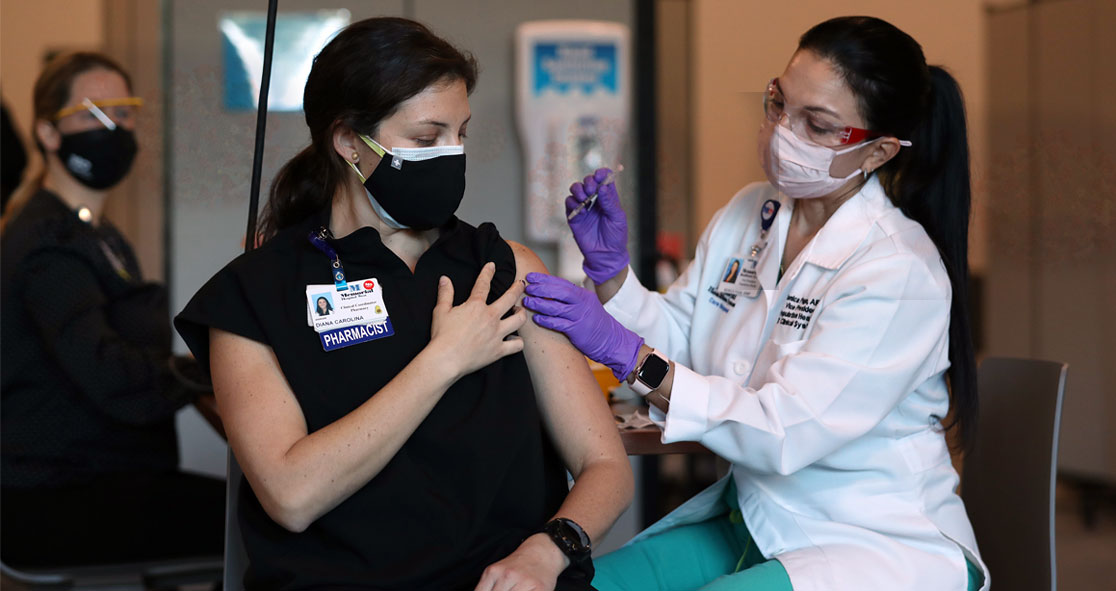On Sunday, a federal advisory panel voted to recommend the next priority groups, which include the elderly and certain essential workers, for limited doses of the COVID vaccine.
The Advisory Committee on Immunization Practices (ACIP) of the U.S. Centers for Disease Control and Prevention (CDC) voted 13-1 for the new recommendations on the guidance of the second priority group that should receive the vaccine.
According to ACIP, Phase 1a group include health workers (a group of over 20 million people) and long-term residents and employees of medical facilities (a group of around 3 million).
The committee said the next priority group, which is Phase 1b, should consist of older people who are 75 and above (nearly 30 million) and front-line essential workers (around 21 million).
Upon comparing the two groups, Phase 1b covers about 49 million people, CDC said.
And then comes Phase 1c that will include adults aged between 65 and 74 (a group of over 30 million), adults aged between 16 and 64 years who have comorbidities (a group of around 110 million), and the essential workers who did not qualify for Phase 1b (a group of 57 million). This indicates that Phase 1c would cover nearly 130 million.
On December 11, the FDA granted emergency use authorization (EUA) for Pfizer’s COVID vaccine, while Moderna received the EUA on December 18.
The CDC said nearly 3 million doses of Pfizer’s COVID vaccine have been distributed across the nation, with over 556,200 people receiving the first dose.
Federal and state governments will take ACIP’s guidelines into consideration as they distribute the initial supplies of COVID vaccines.
The members of the ACIP panel called Sunday’s vote a difficult decision, forcing them to choose people who could benefit from early access to the limited supply of the vaccines.
Dr. Helen Keipp Talbot of Vanderbilt University, who is an ACIP member, said, “For every group we add, it means we subtract a group. For every group we subtract, it means they don’t get the vaccine for some months. It’s incredibly humbling and heartbreaking.”
Another ACIP member Henry Bernstein, DO, who voted against the recommendations, said he fully supported the inclusion of the elderly and essential frontline workers in Phase 1b, but he voted no because the data on COVID morbidity and mortality for adults aged between 65 and 74 years is similar enough to the elderly group.
“Therefore, inclusion of the 65- to 74-year-old group in Phase 1b made more sense to me,” he added.
The CDC said the frontline essential workers will be those commonly called “first responders,” such as police officers, firefighters, teachers, support staff, daycare providers, and those who work in groceries and agriculture. In addition, the group would include employees and transit workers of the US Postal Service.
Chair of ACIP Dr. José Romero said there is a potential to worsen existing disparities in healthcare access because people with high income may get it easily by providing proof that they have comorbidities. “Many people don’t have access to medical care and can’t come up with a doctor’s note that says, ‘I have diabetes,’” he added.























